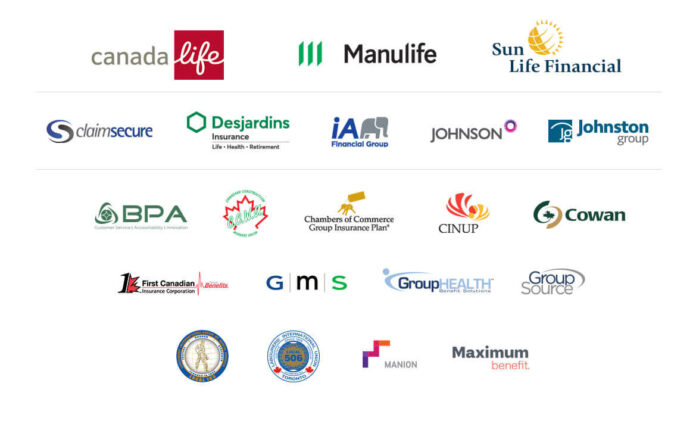You can be protected by an insurance policy from the risks associated with everyday living, such as automobile accidents, life-threatening illnesses, and floods and fires. Disasters cannot be prevented, but a solid insurance plan can offer financial protection for these unforeseen costs.
Making a sound personal financial plan requires protecting your most valuable assets, and the correct insurance coverage can greatly assist you in protecting both your income and your possessions. This article talks about five policies you can’t live without.
KEY LESSONS
Select a disability insurance plan with sufficient benefits to allow you to maintain your standard of living even if you are no longer able to work.
Life insurance should be at the top of your list of necessary insurance plans to protect the people who depend financially on you.
Health insurance is essential due to the rising costs of medical care.
The cost of replacing your home is high. The procedure might go more smoothly if you have the appropriate homeowner’s insurance.
If a covered loss results in damage to a renter’s personal property, renters insurance gives them peace of mind.
1. Insurance for long-term disability
Some people decide to disregard the possibility of long-term disability (LTD) because it is so terrifying. Even though we all believe that “nothing will ever happen to me,” putting your future financial security in the hands of hope is not a good idea. Choose a disability policy instead.
For covered disabilities, long-term disability offers a financial payout equivalent to a percentage (such as 50% or 60%) of the insured’s wage. Usually, short-term disability ends when long-term disability starts. The impairment must have happened after the policy’s issuance and thereafter, usually after a waiting period, in order to qualify for payments. The insurer must be given medical information, frequently verified by a doctor, for review.
The majority of long-term disability insurance policies classify impairments as being related to one’s own or any work.
Own occupation denotes the insured’s inability to carry out their normal employment or a comparable profession as a result of a handicap. Any vocation denotes the insured’s inability to perform any work for which they are qualified as a result of their condition.
Workers’ compensation, sometimes known as workers’ comp, is a type of insurance that compensates employees for disabilities or injuries sustained at work or while doing their employment. The majority of states mandate that companies maintain workers’ compensation insurance for their workforce. Employees are forbidden from suing their employer for carelessness in exchange.
Workers’ compensation insurance and long-term disability insurance both cover disabilities, but the latter does not only cover illnesses or accidents sustained at or while working.
2. Insurance for life
The people who are financially dependent on you are protected by life insurance. Life insurance should be high on your list of necessary insurance plans if your parents, spouse, kids, or other loved ones would suffer financially as a result of your passing. Consider how much you make annually (and how long you intend to work), then get an insurance to replace that income in the case of your untimely death. Include the cost of burial as well, as many families struggle with this unexpected expense.
3. Insurance for health
Health insurance is essential due to the rising costs of medical care. Even a routine trip to the family doctor can incur a substantial expense.
Residence Insurance
The cost of replacing your home is high. The procedure might go more smoothly if you have the appropriate homeowner’s insurance. When looking for a policy, seek for one that includes coverage for the cost of living somewhere while your home is being restored, as well as the replacement of the structure and its contents.
Remember that since you already own the land, the cost of rebuilding does not need to include the cost of the land.
The cost to replace your home could be higher or lower than what you bought for it depending on its age and the features it has. Find out what local builders charge per square foot and multiply that amount by the volume of space you need to replace to get an accurate estimate. Remember to account for the price of upgrades and extra features. Make sure the insurance policy will pay for any liability for accidents that might happen on your property.
Insurance for Tenants
Renters also require assurance that, in the event of a loss, they would be made whole. Fortunately, those who rent or lease residences have access to a sort of property insurance called renters insurance.
There may be two different types of property insurance for a single property: renters insurance and homeowner’s insurance. However, the tenant’s personal property is not covered by homeowners insurance. In order to safeguard their valuables, lessees need buy renters insurance.
Despite the fact that renters insurance is different from homeowners insurance, they both contain the same elements: coverage for the building (A), coverage for other structures (B), personal property (C), coverage for additional living expenses (also known as loss of use), liability (E), and medical payments (F).
Coverages A and B are frequently set to 0 because renters are not responsible for insuring the home or any structures.
The renter’s personal belongings are covered by Coverage C. In the event of a loss, Coverage D offers supplementary benefits for living costs. For instance, Coverage D will pay for the cost of living somewhere if a fire forces the renter out of their house and forces them to pay for a hotel and meals. Coverage F pays for medical costs for visitors of the renter who are on the property with permission and Coverage E covers injuries and property damage caused by the insured.


